A physiotherapist says these are the six best back stretches to do every day
Undo the damage of sitting at your desk with these six stretches designed to soothe your back and improve your flexibility

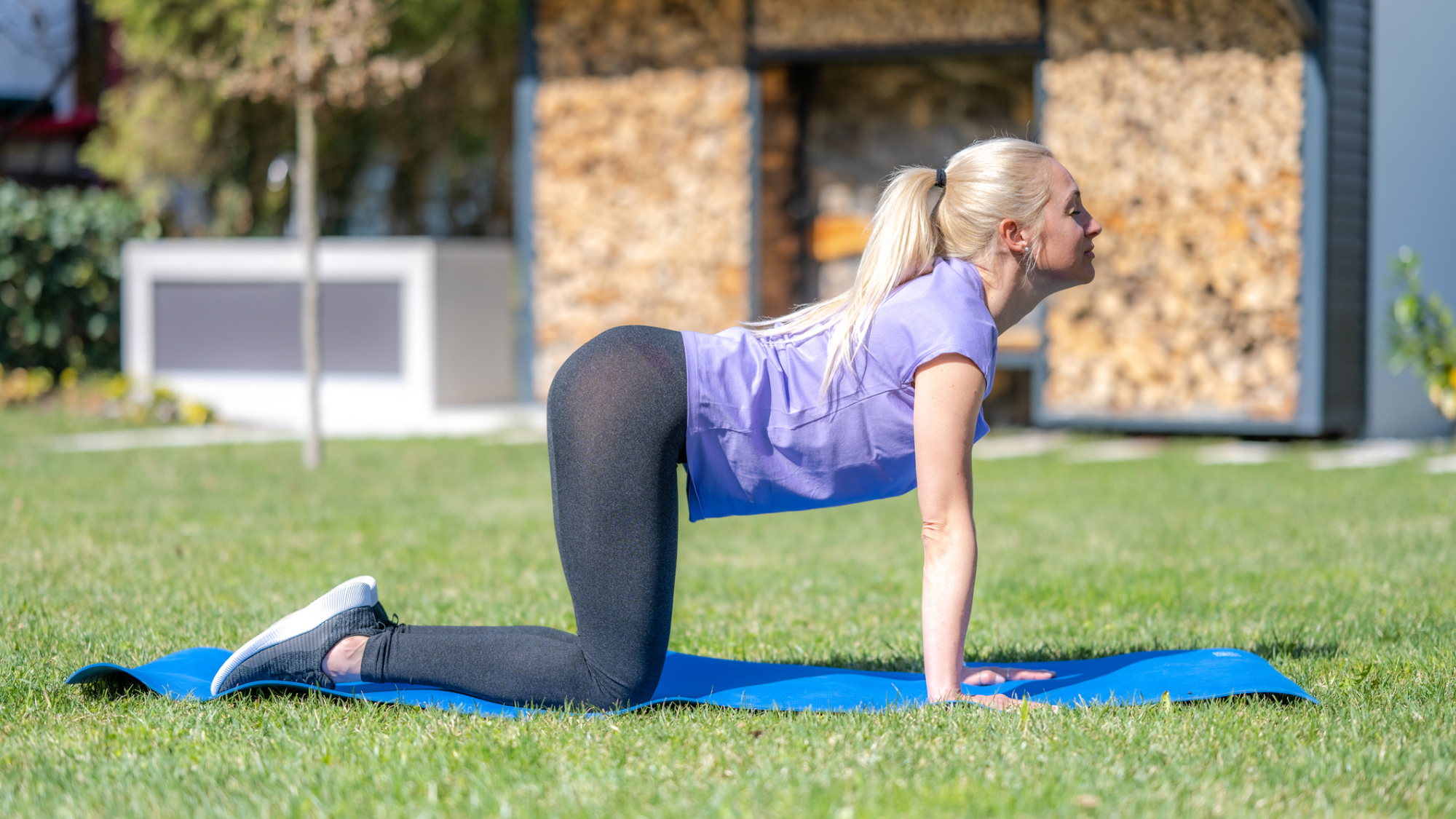
Start your week with achievable workout ideas, health tips and wellbeing advice in your inbox.
You are now subscribed
Your newsletter sign-up was successful
Millions of us spend hours hunched over our desks every day, which can leave the body feeling stiff and sore. Fortunately, there is a simple way to fight the negative effects of sitting down for 40 hours each week: movement.
Taking a lunchtime stroll, squeezing in a yoga session or heading to the gym are all effective ways to combat the damage of sitting at your desk.
But if you're short on time, you could try these six daily back stretches, recommended by Helen O'Leary, a physiotherapist and clinical director at Complete Pilates.
1. Book openings
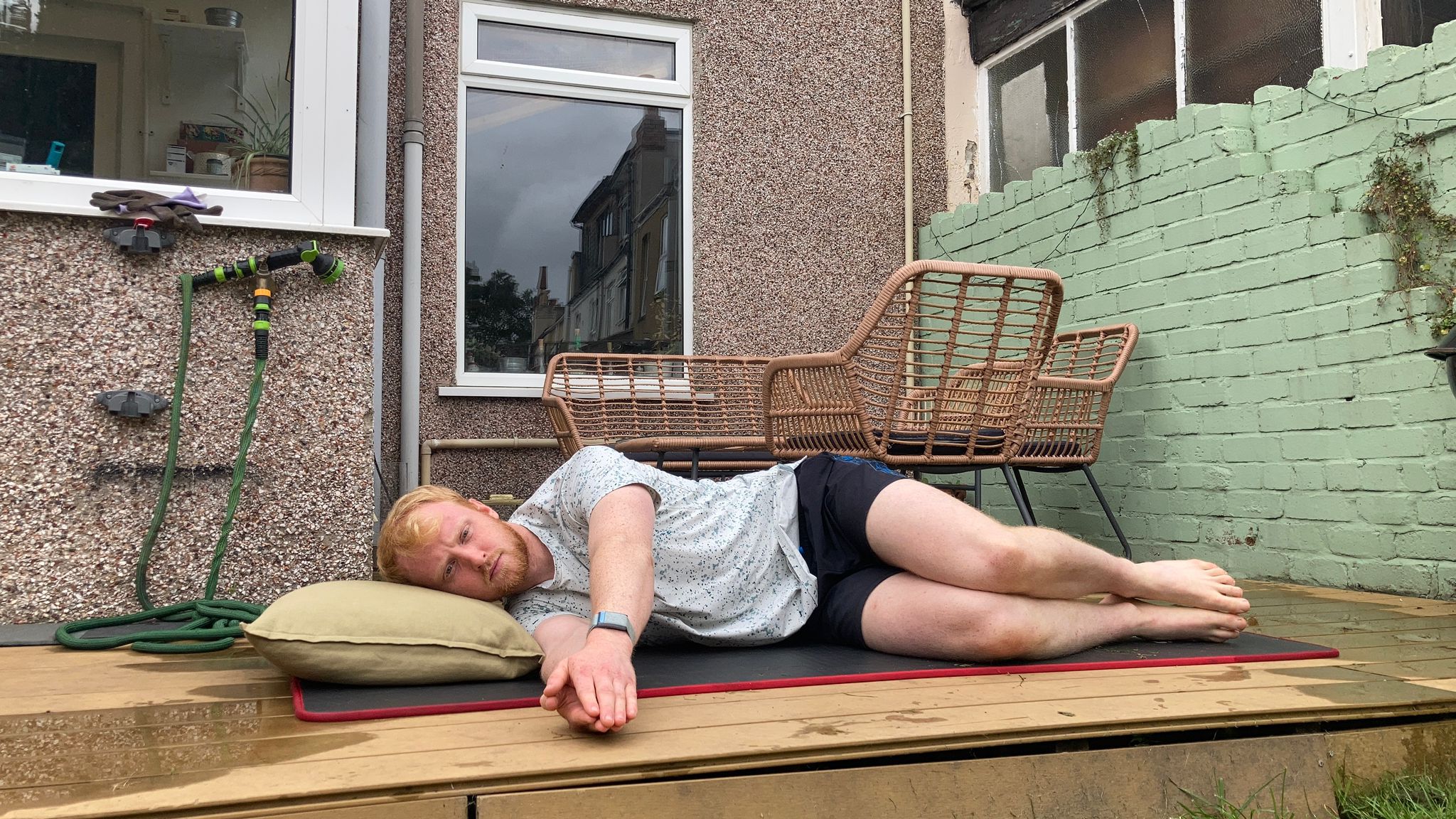
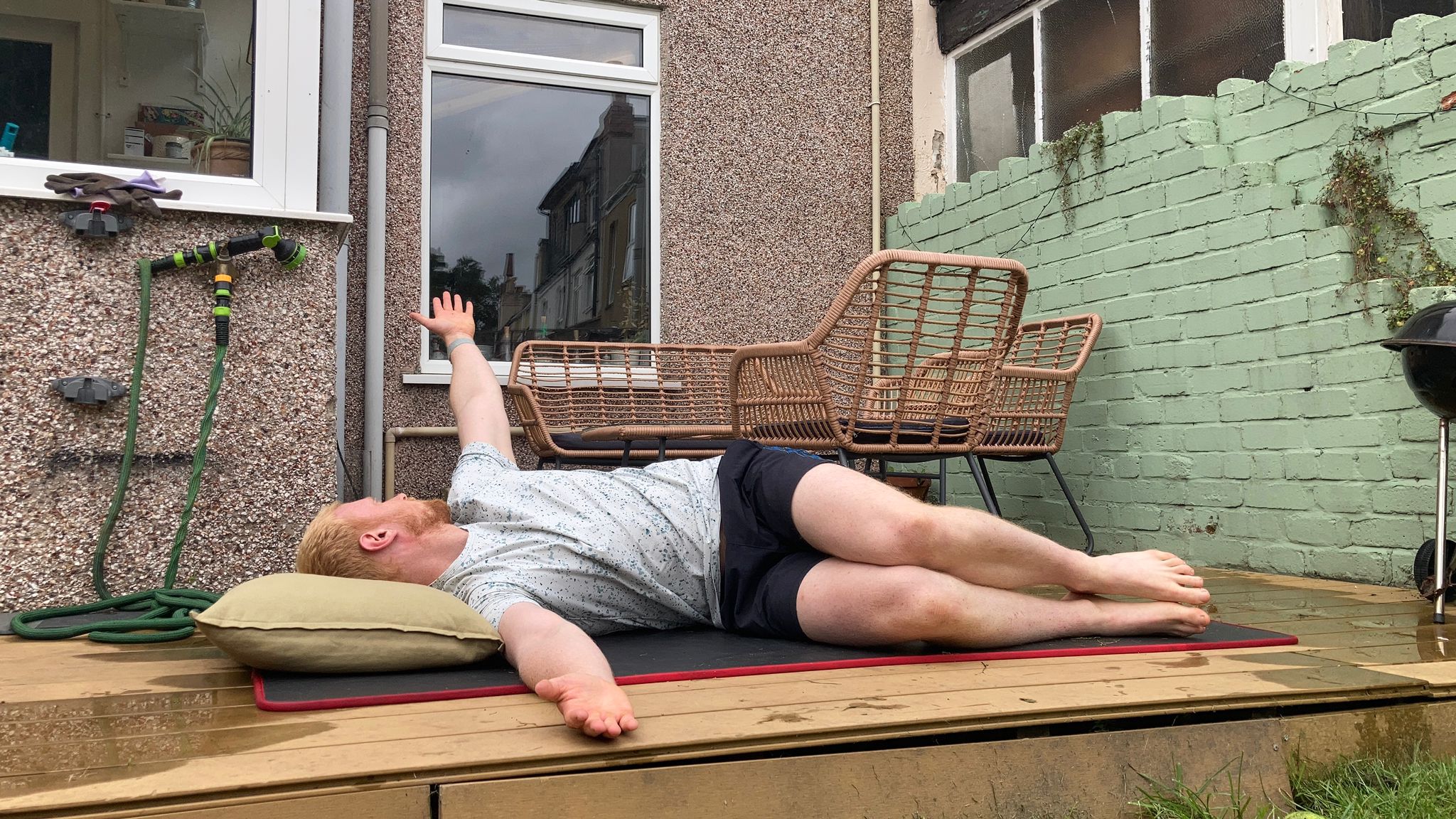
Reps: 5 times on each side
Lie on your side with your legs bent and stacked on top of each other. Place a couple of cushions under your head to maintain a neutral (straight) spine. Extend your arms straight out in front of you. Take a breath in then, as you breathe out, reach your top arm up towards the ceiling and behind you as far as you can. Retrace your movements to return to the starting position.
"This exercise is great for getting mobility into a stiff upper back," says O'Leary. She advises that you focus on rotating through the upper back during the stretch and follow the movement of your hand with your eyes.
2. Child's pose
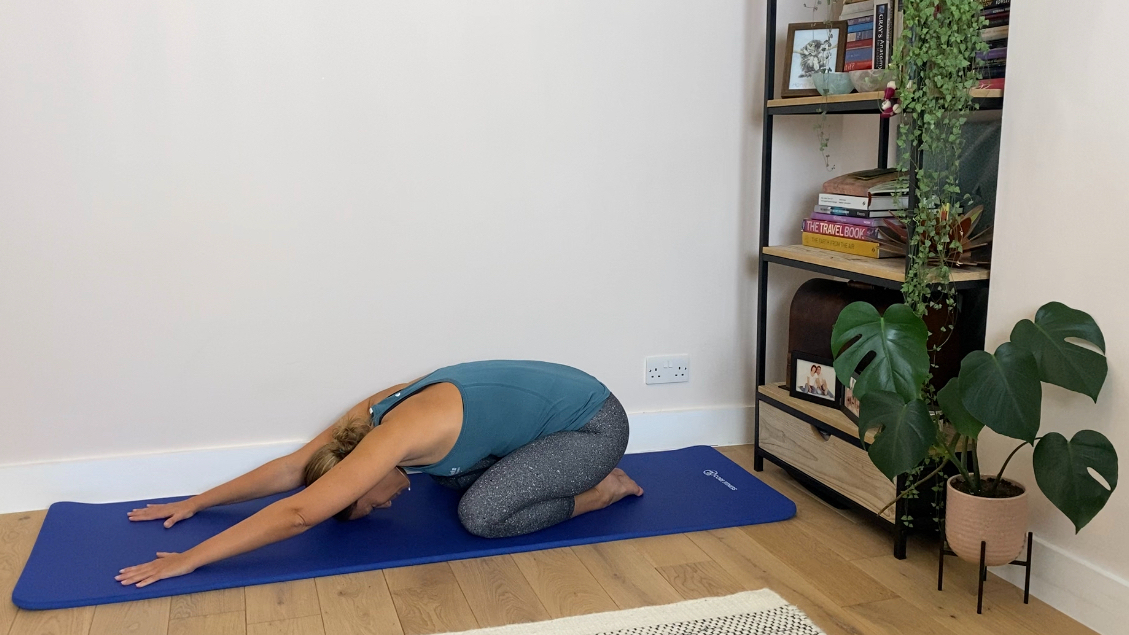
Time: Hold for 30 secs
Start your week with achievable workout ideas, health tips and wellbeing advice in your inbox.
Kneel on the floor with your backside resting on your heels. Stretch your arms out in front of you and let your head rest on the floor. Draw your backside down towards your heels, thinking about tucking your tailbone under.
This move is good for lengthening and loosening muscles in the lower back, according to O'Leary. "If you are holding a lot of tension in your lower back and the muscles feel tight when you touch them, this one is for you," she says.
3. Extended child's pose
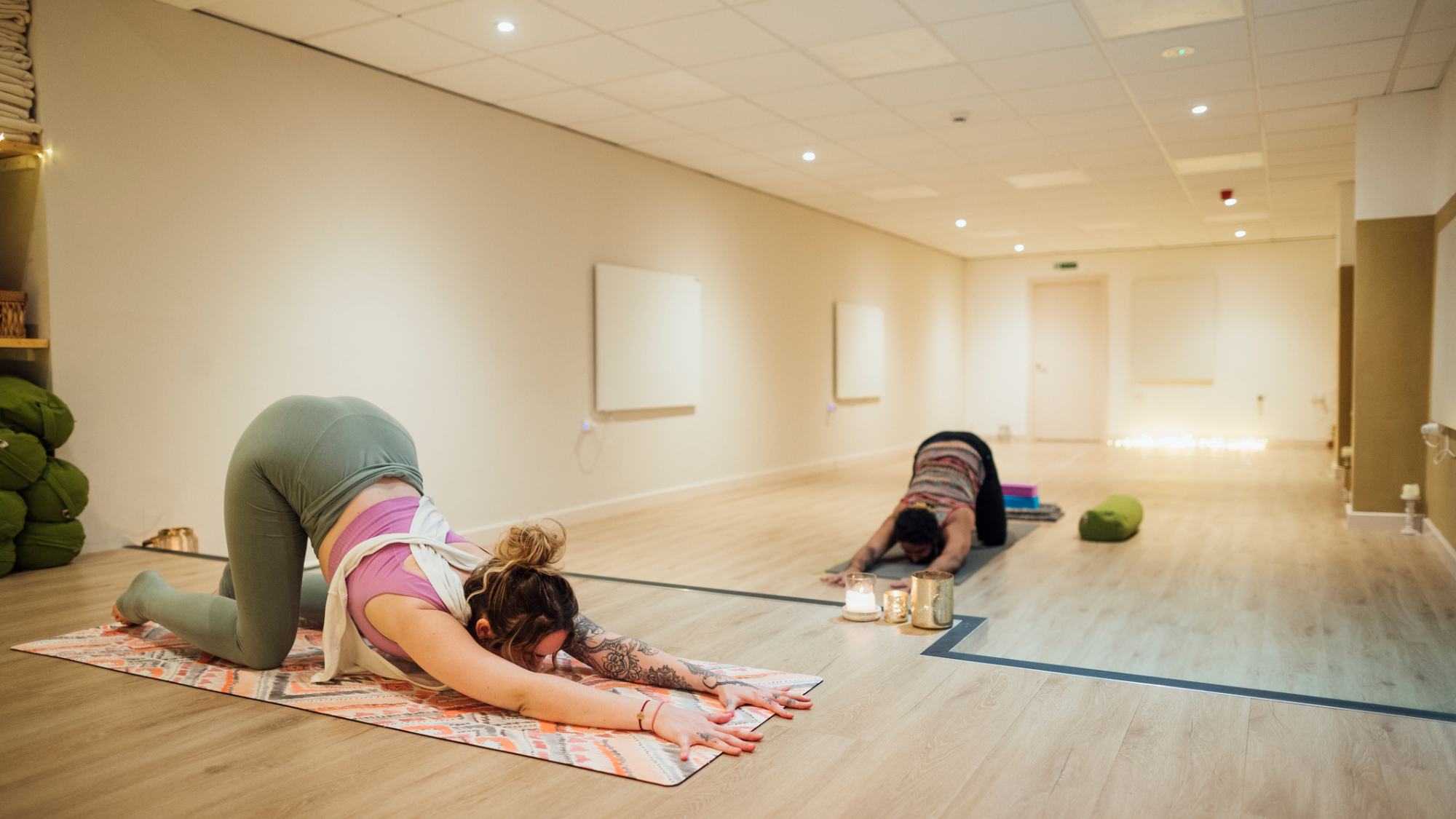
Time: 10-30 secs, depending on your tolerance.
Start in child’s pose, as described above, then walk your hands forward until your backside has to lift away from your heels slightly. Keep walking the arms forward until your hips are directly over your knees. From here, allow the chest to sink down towards the floor.
"This variation is good for addressing stiffness of the upper back caused by lack of mobility in the spine," says O'Leary.
4. Cat-cow
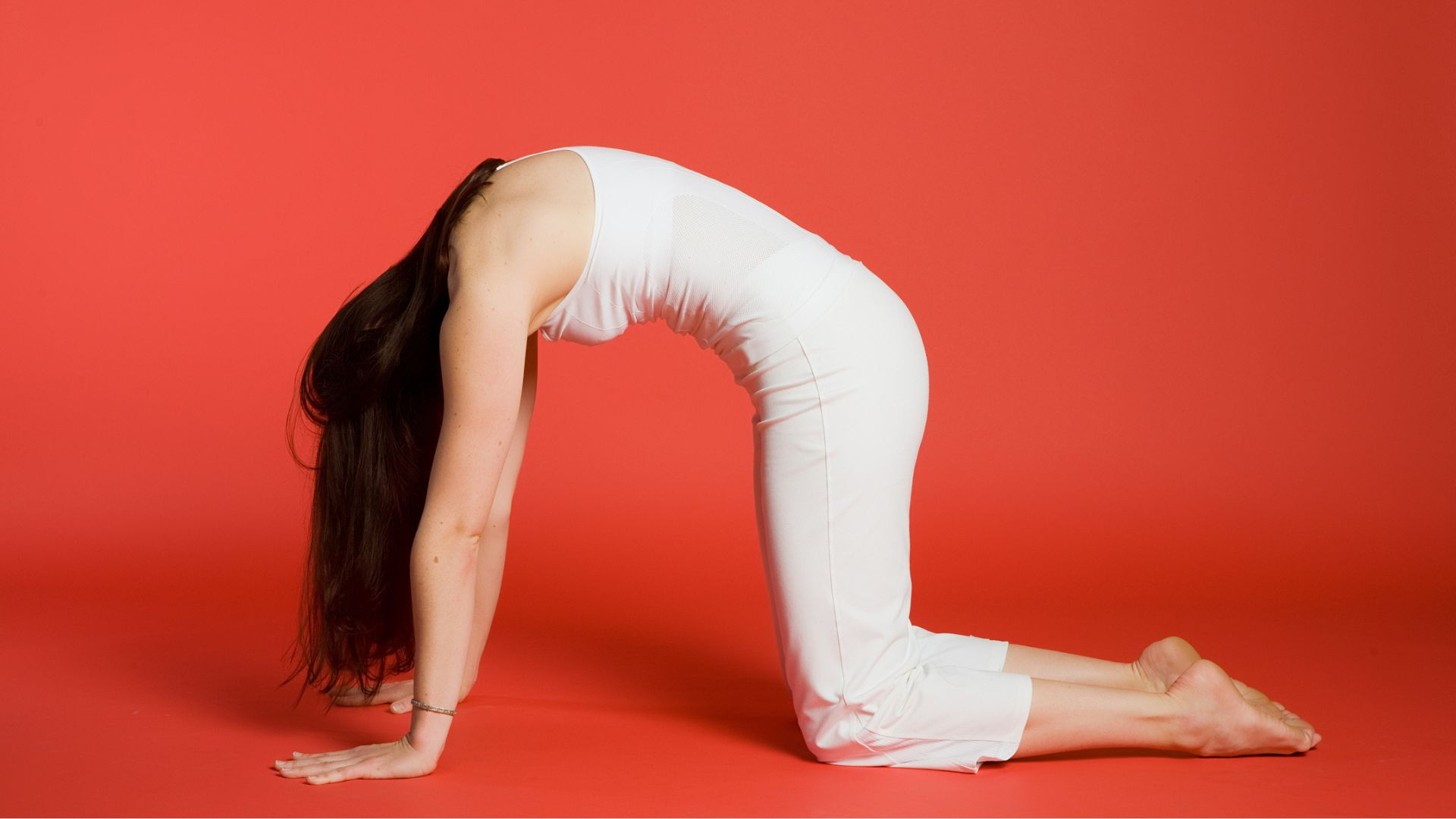
Reps: 10
Start on all fours on a yoga mat. Your shoulders should be directly above your wrists and your hips should be directly above your knees. Curl your whole back upwards towards the ceiling by sending your tailbone down towards the ground and lowering your head so you're looking at the front of your knees. This is the "cat" portion of the movement.
Next, starting from your tailbone, point your tail up towards the ceiling, then dip the lower back to form a bowl shape. Gently sink your torso between your shoulder blades and lift your gaze to look in front of you.
"Cat-cow is a classic exercise which is good for almost everyone," says O'Leary. "This is a whole spine mobility exercise that builds a mind-body connection so you can really get in touch with how good your movement is in each section of your back."
5. Thread the needle
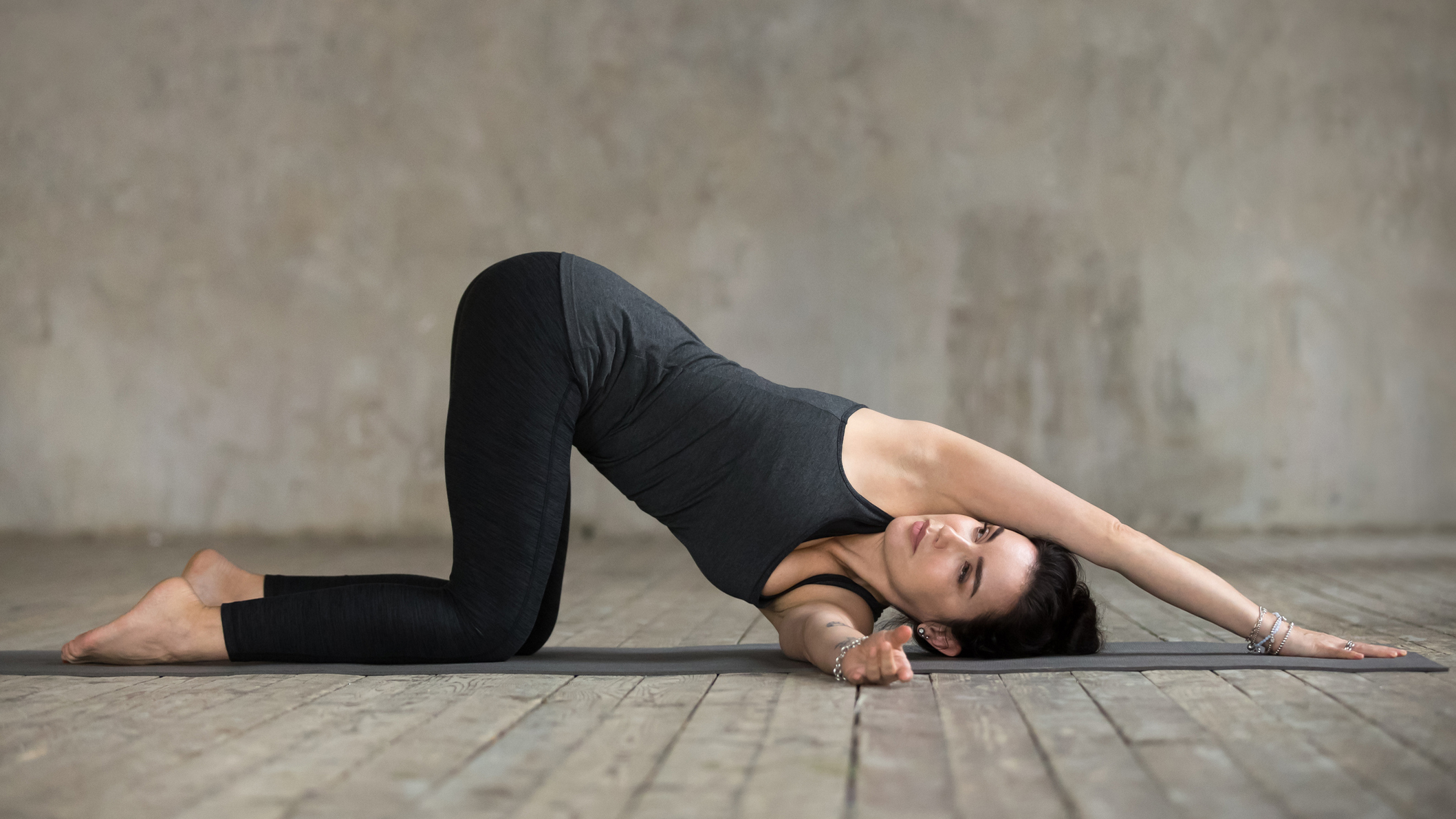
Reps: 5 times on each side
Start on all fours, leaning slightly forward so there's a little more weight through your hands than through your knees. Take one hand and "thread" it underneath you, behind your other arm. Reach through with your hand until your shoulders start to turn to follow the movement and your head comes down to rest on the floor. Hold this position for a deep breath.
Next, reverse your position, taking the hand back out from underneath you, twisting your torso to the other side and reaching the same hand up towards the ceiling. This should cause your chest and shoulders to open. Keep your hips directly over your knees throughout these movements.
6. Roll down
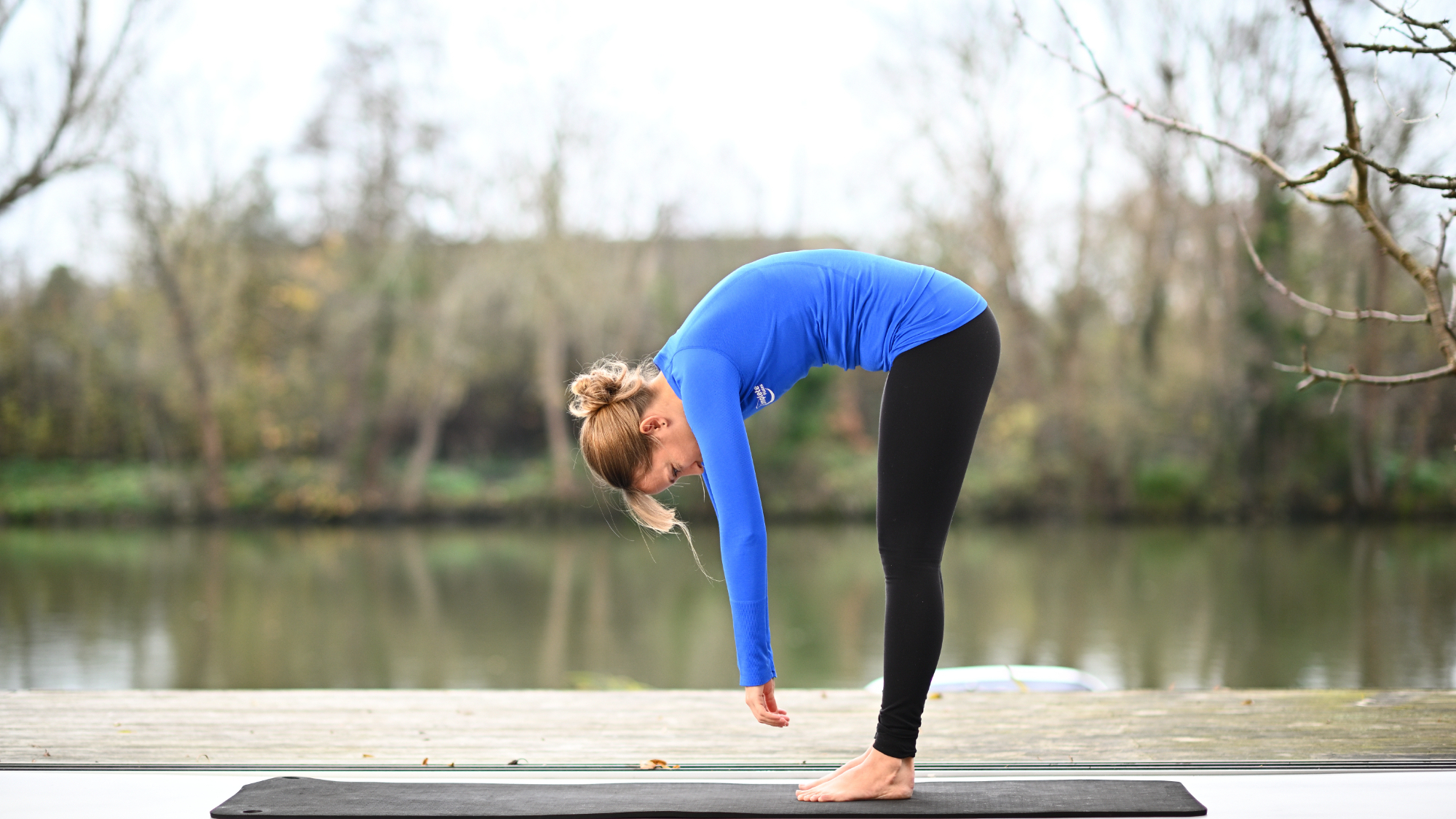
Reps: 5
Stand tall (you can do this against a wall, if you wish) and slowly shift the weight forward into the balls of the feet. Let your arms hang in front of you then allow them to feel heavy as you start bending over by rolling your body down towards your feet. At the bottom of the movement let the weight of your arms hang and stretch the lower back. Then take a breath in and press the balls of your feet into the floor as you start to roll yourself back up again, thinking of the spine elongating as you rise.
"If your back is against a wall, you should notice your spine rolling bit by bit away from the wall," says O'Leary.
Benefits of these stretches
If you're feeling sore and achy after sitting still all day, that's a sure sign that you need to do more movement and stretching
"Our body is designed for movement but unfortunately, modern lifestyles are sedentary and we do not move as much as we should," says O'Leary. She explains that regularly moving our joints will 'lubricate' them and encourage flexibility of fibrous tissues surrounding that joint—but she advises avoiding movements that feel uncomfortable.
"It's fine to gently stretch your back on a daily basis if you enjoy doing it and feel better after," she says. "However, it is important to take note of how your body feels. If you have any pain after stretching or you are trying to stretch out a pain that is not going away, then it is recommended to consult with a health professional about the right exercises for you."
Looking for more short stretching sequences to add into your work days? Give this 10-minute daily mobility routine a try, or find some time to do these beginner yoga stretches.
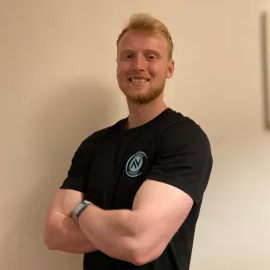
Harry Bullmore is a Fitness Writer for Fit&Well and its sister site Coach, covering accessible home workouts, strength training session, and yoga routines. He joined the team from Hearst, where he reviewed products for Men's Health, Women's Health, and Runner's World. He is passionate about the physical and mental benefits of exercise, and splits his time between weightlifting, CrossFit, and gymnastics, which he does to build strength, boost his wellbeing, and have fun.
Harry is a NCTJ-qualified journalist, and has written for Vice, Learning Disability Today, and The Argus, where he was a crime, politics, and sports reporter for several UK regional and national newspapers.